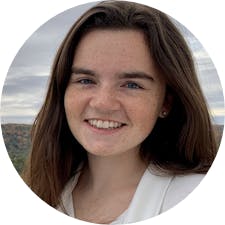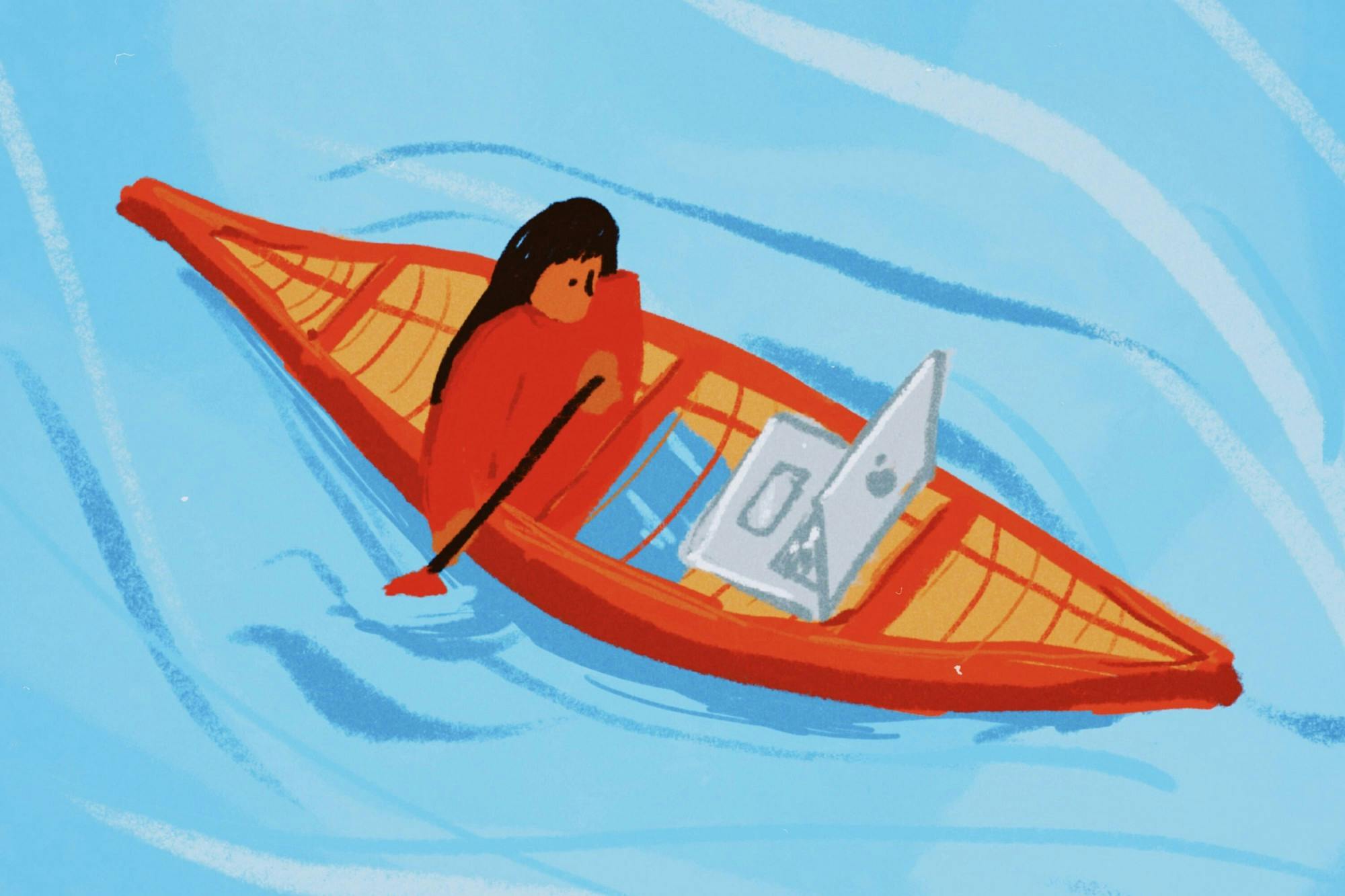Economics professor James Feyrer recalls one of the first moments, at the end of spring term, where hope seemed to permeate the COVID-19 atmosphere at Dartmouth.
“I just remember one of the first warm days in spring,” remembered Feyrer, “sitting in my car and looking at the Green filled with students, thinking how happy I was. It was one of the nicest things I’d seen in a year.”
Though Feyrer isn’t teaching any courses this summer, he’s been spending time on campus, and he said it’s impossible not to think about how much has changed and how quickly. He noted that all but one of the economics courses being taught this summer are in-person offerings.
“The decision was very professor-driven,” Feyrer said. “It wasn’t like the department said, ‘Everybody needs to be in person this summer.’ It was more like the professors all said, ‘Oh, can I be in-person?’ and the department said, ‘Yes.’”
Religion professor Randall Balmer is teaching two classes this summer. Both have in-person and remote sections to maximize the experience for students whether they’re on campus or learning remotely.
“Teaching is a species of performance,” said Balmer. “The object, of course, is to invite students into a larger intellectual conversation. It can be done remotely, and I think the classes have worked reasonably well, but it’s better in person.”
Balmer emphasized that the art of teaching, even in lecture-style courses, is about bringing students along for the ride, which can’t be done without a certain shared energy or sense of purpose. Former Provost Joseph Helble’s announcement last week that most COVID-19 restrictions would be lifted and vaccinated students would no longer be required to wear masks represents an important step, Balmer said, in getting back to what makes things tick in the classroom.
“I used to teach at Columbia, and I had a graduate student there who always said ‘teaching is a form of seduction,’” recalled Balmer. “I’d be careful about that, but it is. It’s an invitation to some sort of intellectual universe ... I see teaching, and my career more generally, as an attempt to invite students into the delights of the life of the mind. It’s easier to pull off in an interpersonal context than through the mediation of technology.”
Professor John Lee primarily teaches in the Studio Art department, and is teaching Sculpture I this summer. This course coincides nicely with the return to three-dimensional living, as opposed to a 2-dimensional computer screen, for many students on and around campus — a fact which does not escape him.
“There’s something different about going into the next room and opening up your computer and sitting down to a class or actually walking into a different physical space,” said Lee. “You have a very different activity level. There’s something artificial about Zoom in my mind — that I think people did a wonderful job overcoming — but I’m not a big fan of virtual reality. I think reality itself is challenging enough. You have real people occupying the same physical space. It’s like listening to music on a computer as opposed to listening to people play at the Hopkins Center.”
While students and professors alike are excited to be back in a classroom, there’s no question that the past year will persist in our collective consciousness. In fact, professors have found that Zoom has provided them with some positive takeaways amongst all of the difficulty and general gloominess.
For Balmer, this year has provided an opportunity to create a more focused classroom because of the extra effort it takes for students to engage over Zoom. He was also able to focus on his own work outside of the classroom.
“[Remote teaching] allowed me to record lectures at my own pace, and so I was able to devote more time to research and writing,” said Balmer. “I completed three books this year in part because I didn’t have to go to class at certain times.”
Feyrer also recalled a colleague who found COVID-19 to be transformative for his style of teaching.
“We have one professor [in the Econ department] who has always been a lecturer from the chalkboard,” recalled Feryrer, “and he realized that wasn’t going to work on Zoom. This led him to revise a lot of his lectures, and to some degree, it revamped the way he teaches. It shook things up, and I think he walked out of it being more excited about teaching than he’d been in a while. It was new, it was hard, it was challenging, it was a little scary — but I think it worked. I think he would unambiguously say that [the pandemic] made his teaching better.”
In Feyrer’s mind, the renewed appreciation of students and professors alike for the in-person experience will only improve the classroom experience at Dartmouth .
“I suspect that live teaching in the fall will be better than it ever was,” Feyrer said. “You just question a lot of the stuff you’ve been doing for, like, 20 years.”
Lee echoed this sentiment, emphasizing the importance of moving forward with what has been learned.
“I don’t think anybody’s foolish enough to think that just because we’re back in the studios and classrooms, people’s recent memory of COVID is gone,” said Lee. “I hope it’s not gone. I hope that we all have a lot more gratitude for the opportunities we have because it was interesting when they were taken away from us.”





